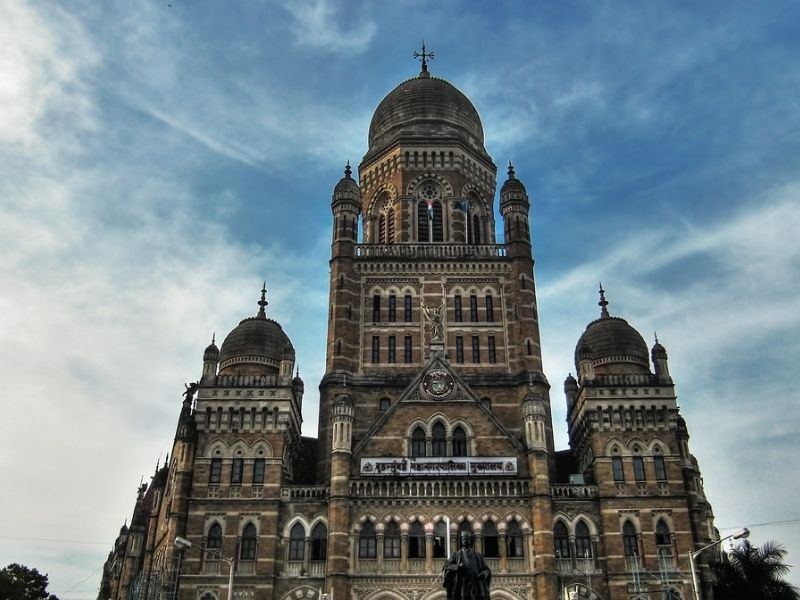-Dipta Joshi
As Mumbai’s municipal body – the Brihanmumbai Municipal Corporation (BMC) – commences admissions for 10 of its newly launched, free-of-cost, Central Board of Secondary Education (CBSE) board-affiliated schools, academic experts have mixed opinions about its success.
Mumbai’s civic body runs 1200 state-board affiliated schools with an enrolment of 3.11 lakh children (2017-18) from low-income homes. However, facing flak over the quality of education it provides, civic-run schools have been hit by poor enrollments with parents switching over to ‘paid-for’ low-budget private schools despite the ‘free-of-cost’ BMC schools. According to the 2017-18 data collected by the Mumbai-based not-for-profit Praja Foundation, student enrolments in BMC’s schools have gone down by as much as 50 percent since 2008.
The BMC’s decision to offer ‘Quality Education for No Fees’ hopes to end BMC schools’ downward spiral by attracting a higher number of students. The new CBSE schools promise to provide state-of-the-art infrastructure, digital and virtual classrooms, tabs and computer labs, science labs, playgrounds and school libraries. Students will also be exposed to sports and cultural activities besides music and dance.
However, Milind Mhaske, director, Praja Foundation says, “Infrastructure has never been an issue with BMC’s schools and neither was pedagogy an issue. It was poor learning outcomes, lack of teacher accountability and lack of well-equipped school leadership that has led to parents shifting their children out of BMC’s schools. Introduction of a new board cannot really solve the problem if the crux of the issue is not addressed. The BMC is simply shifting the goalpost here.”
Rohan Bhat, Chairman, Children’s Academy Group, believes the BMC’s decision to introduce CBSE board schools was probably based on the parent community’s growing preference for CBSE board but doing that might not really resolve the perception issues associated with BMC’s schools. “Educational boards tell schools what to teach but not how to teach. The shift to a new board seemingly undermines the already existing state board education despite the fact that several of our city’s schools following the state board curriculum are top ranked educational institutions simply because they are administered well. However, I believe, the move can be a game changer in the long run if it helps to create a new profile for government schools. Further, if the quality of education can also be maintained, these schools will help in easing the pressure off private schools offering CBSE curriculum as parents will have more options.”
The move to introduce ‘no-cost’ CBSE board schools has been appreciated by private school managements who have championed the cause for improved public-school system to resolve fee related disputes between parents and private school managements. “While middle-class parents want quality education for their wards, they find the tuition fees unaffordable. Providing a robust public education system that charges little or no fees is the duty of the government not private educational institutions. Thus, if BMC’s new schools are able to match the quality standards of private schools, they will not only spread literacy but also ensure students who cannot afford private education fees avail of quality education at little or no fees which will help in resolving fee disputes between parents and private school managements,” says S.C Kedia of the Unaided Schools Forum.
The civic body has set aside a budgetary provision of Rs. 2 crore for the 10 new CBSE schools within the city in the education budget (Rs 2,945.78 crore) for the year 2021-22. The schools will admit students in junior KG to grade six with 40 students in each class for the academic yea, 2021-22 and progressively add higher grades each year.
The BMC’s pilot project wherein CBSE and ICSE curriculum for the academic year 2020-21 was introduced in two different schools received an overwhelming response from parents. Going by parents’ preference for CBSE curriculum, the ten new CBSE schools will be introduced at Malad, Borivali, Antop hill, Dadar, Matunga, Jogeshwari, Chembur, Mulund, Vikhroli, Vidyavihar and Powai. The schools are being launched under the existing Mumbai Public Schools (MPS) brand of BMC schools where the medium of instruction is English. Applications for admissions are open between 25 February-17 March. While the BMC has applied to the CBSE board, the final affiliation remains pending.
